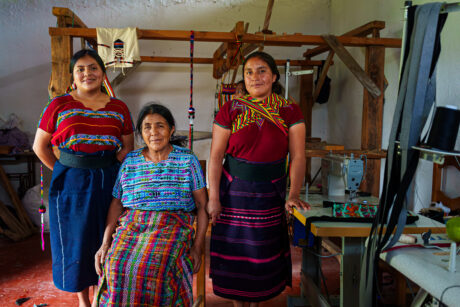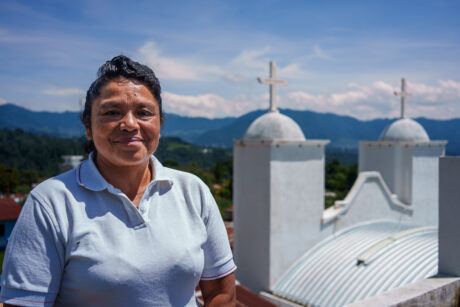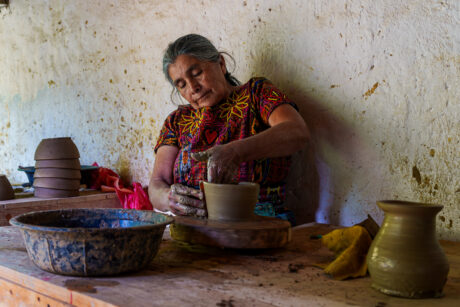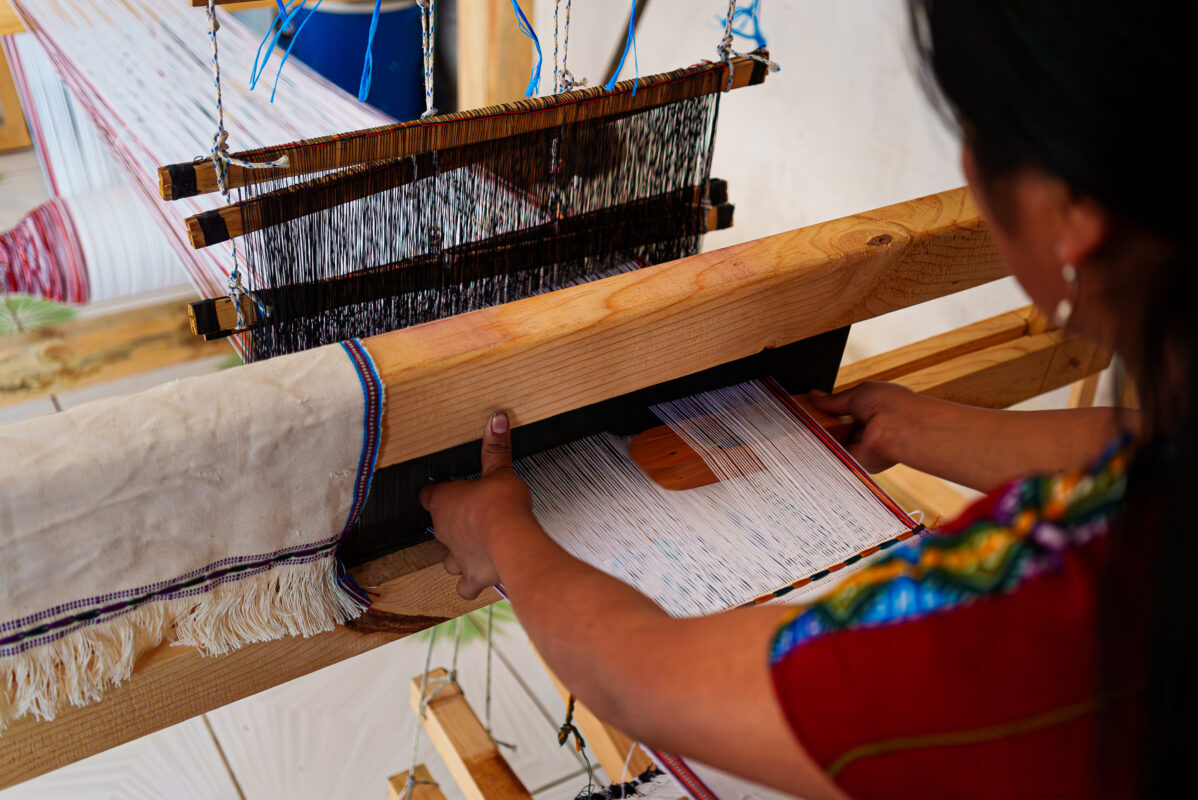In the Western Highlands of Guatemala, 40 women gathered to practice the ancient art of weaving traditional Maya patterns. Participating in the first session of a three-part workshop series, they were learning a new skill: Weaving these designs into footwear.
“I’ve never been to a training like this,” says Heidi Ortiz, a participant in the workshop. “I know that this will be useful in the future for me and for my kids.”
Hosted by the U.S. Agency for International Development’s Peacebuilding Project (known as Proyecto Tejiendo Paz in Spanish), a project that works with remote and often under-resourced communities to address and resolve social conflict, the workshops were about more than making shoes. Tejiendo Paz created the series as part of a multipronged response to what the San Pedro Necta community expressed as its greatest challenges – gender discrimination and violence against women.
“An approach to this conflict is to empower women economically,” says Marlyn Garcia, a community facilitator for Tejiendo Paz and native of Huehuetenango. “They know how to weave their garments, so it was essential to give them a new tool or knowledge of how to make something else with this fabric.”
Tejiendo Paz organized the event along with national and municipal partners, including the Municipal Commission for Food and Nutritional Security (COMUSAN), the Municipal Women’s Office (DMM) and the Secretariat for Food and Nutritional Security (SESAN). The government partners provided the women with a sewing toolkit, initial supplies and fabric, as well as branding and marketing guidance for their products. Tejiendo Paz hired the instructors and facilitated the workshops. The goal was to give them the skills to create a niche product with the potential to generate a new source of income.
Promoting economic agency and eliminating barriers to participation – with an emphasis on women and youth – are central components of Tejiendo Paz’s work in the Western Highlands. Recent research affirms that societies that oppress women are more likely to show higher levels of violence and instability. In this way, Tejiendo Paz organized these workshops to promote gender equity in the region.
“Building skills and supporting a paradigm shift in gender roles in terms of both economic and civic empowerment are part of building more peaceful communities that are better able to cope with conflict,” says Sara Barker, Tejiendo Paz’s Chief of Party.
Preserving cultural identity
In San Pedro Necta, women reported another layer of gender discrimination. In community meetings, they shared that not being able to afford traditional clothing prevents them from participating in leadership roles and decision making in their communities. This new source of gender discrimination adds to what they already experience in a country with high levels of gender violence.
“There is a lot of embarrassment around not being able to afford traditional clothing,” says Marlyn. “The migration of women to other countries for economic resources and for the ability to afford this kind of clothing contributes to the disintegration of families.”
As globalization affects indigenous communities around the world, it becomes increasingly difficult for people to sustain traditions while making a living in the modern economy. The first workshop in Tejiendo Paz’s series, called “Conservation of Cultural Identity,” addressed that issue in the context of gender equity and economic empowerment.
“It’s important to preserve our traditions and customs so we don’t lose them,” says Felina Bravo Lopez, president of a women’s group in San Pedro Necta. “I see many women wearing pants and a blouse because it’s cheaper and they lose the use of traditional clothing, but it shouldn’t be that way. But I understand how expensive it is to buy traditional clothing, so the fabric [the course] donated will mitigate this cost.”
These trainings are also intended to be a launching point for future projects and community work.
Matilde Bravo, Manager of the Municipal Women’s office in San Pedro Necta, expressed her enthusiasm for the workshops.
“I am very proud to be here and I’m very proud of the other women with me, they are really enthusiastic about this course in making traditional shoes,” she says “And we don’t want this activity to end here, we want to continue doing activities like this with our partners.”
A broader vision for gender equity
In meetings facilitated by Tejiendo Paz, members of target communities identify key conflicts and obstacles to finding peaceful resolutions. These sessions culminate in “community visions,” which become guides to point both individuals and governing bodies to appropriate resources as well as roadmaps to shape community development. Tejiendo Paz has delivered 27 such plans across the departments of Huehuetenango, Totonicapan, Quetzaltenango and San Marcos.
In many of these communities, Tejiendo Paz organizes women’s networks that offer leadership support and solidarity in addressing gender violence and discrimination. Along with economic empowerment, civic empowerment is the other side of the coin in shifting gender paradigms. Marlyn describes how a host of obstacles bar women from civic participation.
“In theory, women’s rights are the same as men’s, but in practice this isn’t the case,” she says. “Inequality in education, discriminatory attitudes and institutions and lack of access to other services prevent women from getting involved politically.”
The sewing workshop series was thus a space to share information about women’s rights and capacity for meaningful civic engagement in addition to small business advice.
“We see that the women that participated [in the sewing workshop] are leaving really motivated to continue promoting the improvement of their communities,” says Beldis Vasquez, an employee in San Pedro Necta’s municipal office.



